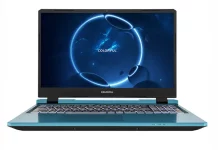India is reportedly postponing the implementation of import licenses for laptops and tablets by one year, according to anonymous government officials cited by Reuters. This decision represents a departure from the previous policy, which had faced criticism from industry players, including giants like Apple and Samsung.

Shift in Import Policy
The move aims to ease concerns and streamline the import registration process. However, the Indian Electronics Department has not provided an official comment on the matter.
Under the proposed “Import Management System,” companies importing laptops, tablets, and PCs will be required to obtain a “registration certificate” instead of the previously planned “license.” This recommendation was communicated to industry representatives during a meeting held by the Indian Electronics Department.
The initial announcement of import license requirements for laptops, tablets, and personal computers had raised concerns about the impact on the market. Previously, companies could freely import such products, but the new regulations required special permits for their sale in India. Industry insiders voiced concerns about longer waiting times for product entry, particularly during peak demand periods like holidays.
Following pressure from various quarters, the Indian government has decided to further delay the implementation of the import license measures. The new effective date for these requirements is now November 1st of this year. Until October 31st, manufacturers can continue importing laptops, tablets, PCs, and server equipment without the need for additional licenses.
This decision to postpone the import licensing system reflects the Indian government’s responsiveness to industry concerns and its ongoing efforts to balance domestic manufacturing promotion with international trade interests.
The one-year delay provides breathing room for companies while the government reevaluates the licensing approach. Industry stakeholders will be closely watching for further developments and potential adjustments to these import regulations.
RELATED:
- iPhone 15 Pro May Be More Prone to Cracking Than iPhone 14 Pro, Drop Test Suggests
- Apple Stores warn against using Android cables due to potential overheating
- Qualcomm’s New Snapdragon 7s Gen 2 Processor is a Secret Rebrand of Last Year’s Snapdragon 6 Gen 1
- Redmi Note 13 Pro vs Redmi Note 12 Pro: Specs Comparison
- iPhone 15 Pro Max vs Honor Magic5 Ultimate: Specs Comparison
- Best Logitech Gaming Mice 2023 – Lightspeed, Superlight series & more
(Source)







